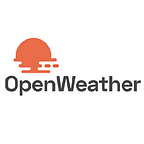World Meteorological Day
“Climate change is the single greatest threat to a sustainable future but, at the same time, addressing the climate challenge presents a golden opportunity to promote prosperity, security and a brighter future for all.” — Ban Ki-Moon, Former Secretary-General of UN
Thursday, 23rd March heralded the 2023 World Meteorological Day. The day officially recognises the formation of the World Meteorological Organization on that date in 1950. The day goes beyond simply recognising the organization’s formation — it highlights the contribution that meteorological and hydrological services made to the safety and prosperity of human societies around the world, as well as looking forward and addressing the challenges we all face today. This year’s topic is “The Future of Weather, Climate and Water across Generations”.
Importance of Meteorology
With the nuanced, versatile and accurate OpenWeather products that can easily be incorporated into a wide range of applications, it can sometimes be forgotten that over the ages, societies have faced immense challenges through unforecast weather events.
Back in 1274 and 1281, The Mongolian empire attempted to invade Japan by sea. Unfortunately for the Mongolians, they were unable to predict the devastating typhoons that put a halt to their undoubtedly well thought-out plans. This is seen as being a root cause of the decline of the Mongolian empire, and the subsequent changes in global societies.
The inland country of Switzerland has even experienced its own unpredicted tsunami. In 553 AD, the Tauredunum event was caused by a landslide in lake Geneva, triggering a 16 m high wave that caused widespread devastation in the area. And by 1748, the global importance of climate was beginning to be understood, the philosopher Montesquieu one penned “Climate is the first World Power’
As with the past, today, understanding the weather, and predicting the future patterns that are likely to happen has become the glue that holds much of the infrastructure we take for granted. From air transport, power generation and logistics to recreation, sport and even the local village fete.
Water Events
In addition to the general weather, the World Meteorological Day this year also specifically highlights the importance of water, both in excess, and as a scarcity. In 2021, Hurricane Ida and subsequent flooding caused up to £65 billion damage. Meanwhile, in Iran, Iraq and Syria, 17 million people were affected by drought. In Afghanistan, 2600 houses were destroyed by floods, and in the Philippines, typhoon Rai displaced 600,000 people. The droughts that hit the Horn of Africa that year affected approximately 18 million people.
Whereas floods tend to me immediate events, and droughts gradual, the effect of both can be equally devastating.
Pooling of Resources
The World Meteorological Day is designed to bring the impact of the weather, climate and water supply to the forefront of public awareness. It is designed to bring organizations, governments and individuals together to work together towards the common goal of reducing greenhouse emissions, and ultimately stabilizing our climate.
The event acts as a forum for experts and those with a deep knowledge of our environment to give our global community the ‘best chance’ to solve the world’s climate crisis. This year, the event will take place at the World Meteorological Organization’s headquarters in Geneva, only a week before the UN Water conference in New York.
World Meteorological Day also aims to raise awareness of our climate, weather and water supply within the global community, and to keep the issues we face at the forefront of public thought.
Understanding the Weather
Weather comes in many forms, from the most gentle of breezes to the newsworthy events we are seeing more and more frequently. Having a detailed, accurate and easy to access source of this weather can help in a multitude of ways. There is barely an industry that does not have a reliance on weather, from agriculture to zoos, they all have their own specific requirements for certain weather data.
Meteorology as a science (and perhaps an art) has developed over many years. Today, OpenWeather provides a clear and concise series of products that can be used for a host of purposes and applications.
About OpenWeather:
OpenWeather provides weather data for any location on the globe using a proprietary hyperlocal forecasting model with a resolution from 500 m to 2 km, globally. More than 5,000,000 customers from logistics, agriculture, insurance, energy, retail, and many other sectors, are working with the company’s weather products.
OpenWeather cooperates with global meteorological agencies such as MetOffice and NOAA, and enhances its model with data from radars, weather stations and satellites. The company provides great availability of service at 99.9% for enterprise-level products.
The products can be easily integrated into complex IT systems and are ideal for ML analytic systems. OpenWeather is a member of Royal Meteorological Society and an Achilles-certified supplier. OpenWeather ethical initiatives include support of educators and students, not-for-profit subscriptions for the general public to increase weather awareness, and recent Ukrainian donation programme, and donations to COVID researchers.
For more information on how to gain access to our OpenWeather products, please email us.
